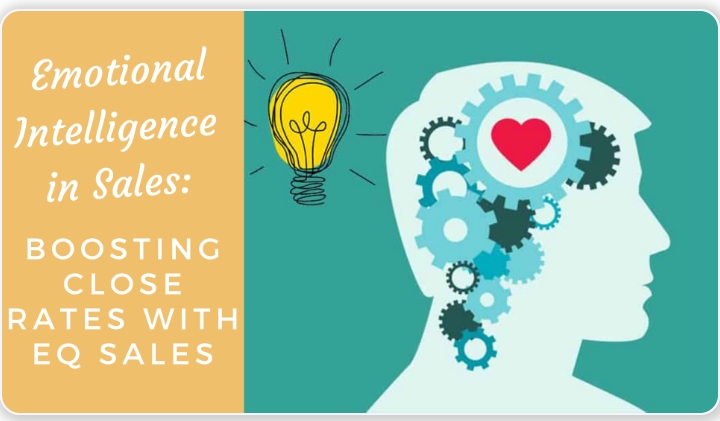
- Emotional intelligence is a crucial skill to have in sales. It can help you overcome the challenges of this highly challenging career path.
Embracing emotional intelligence in sales can have several benefits including improved relationships with clients, increased job satisfaction and performance goals. The key to navigating emotions lies in understanding the power of empathy.
Self-Awareness
One of the keys to emotional intelligence in sales is self-awareness. A highly self-aware salesperson knows what their strengths and weaknesses are, which helps them build stronger relationships with customers. They are also able to identify and understand the emotions that their clients are feeling, which helps them build trust and rapport.
In addition, salespeople who have high EQ can read their client’s emotional cues and respond accordingly. For example, if a customer mentions that they are worried about financing, a sales rep with high EQ can address the concern by explaining how their product can resolve it
Read more: High ticket closer
A salesperson with high EQ is also able to handle rejection well, which is important in an industry that is characterized by constant rejection and disappointments. This resilience helps a salesperson remain motivated, even when they face frequent failures. HR departments can help boost salespeople’s emotional intelligence by implementing an emotional intelligence assessment in the hiring process and offering training in this area.
Self-Control
Self-control is a key part of emotional intelligence and helps sales professionals to maintain their composure even when faced with challenging situations. This allows them to establish genuine connections with clients and build long-term relationships, while also boosting their hard sales skills.
Sales people are often exposed to a lot of rejection, especially at the start of their careers. This can affect their motivation and may cause them to resent their jobs. People with high emotional intelligence are able to cope with this rejection and remain motivated, even in difficult situations.
Empathy is another important trait of emotional intelligence, which enables sales professionals to put themselves in their client’s shoes. This allows them to understand their concerns and needs more clearly, resulting in better customer relations. It can also help them address any underlying objections, which can improve their chances of closing a deal. This is why empathy is such a valuable soft skill in the sales industry.
Self-Motivation
In sales, motivation can make the difference between a successful deal and a missed opportunity. It’s important for salespeople to have self-motivation in order to overcome challenges and meet their performance goals. This is a key component of emotional intelligence and can be derived from a number of sources, including passion and an underlying desire to achieve success.
Empathy is another key aspect of emotional intelligence that helps salespeople cultivate meaningful relationships with clients and close deals. This involves putting yourself in the shoes of your client to understand their emotions and concerns. It’s also an essential tool for handling objections and fostering trust.
People with high EQs are more likely to remain motivated through difficult situations, such as when they experience rejection from clients. They recognize that a “no” doesn’t mean they’ve failed, so they can stay positive and focus on improving their technique instead of getting discouraged or stressed. This type of positive attitude helps them overcome obstacles and build lasting professional relationships with their clients.
Patience
Emotional intelligence is a key ingredient in sales. It’s essential for fostering relationships with customers, nurturing their trust and meeting performance goals. However, there are many complexities that need to be considered when deploying emotional intelligence in sales.
For example, salespeople with high EQ are more able to deal with rejection and stay motivated after a few failures. They understand that not every prospect is going to buy and won’t take it personally. They also know that each rejection is a learning opportunity to improve their technique.
As a sales manager, you need to encourage this behavior by regularly checking in with team members to see how they’re progressing on their sales plan. This will not only nurture team spirit and build morale, but it will also help you discover any hidden issues that need to be addressed before they become bigger problems.

